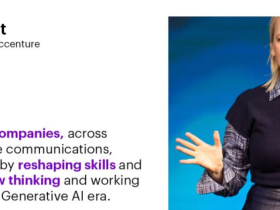Introduction
The landscape of education has been transformed by the rapid advancements in technology, and one of the most significant developments in recent years is the integration of artificial intelligence (AI) into the learning process. AI tools are revolutionizing the way students study, offering personalized learning experiences, automating routine tasks, and providing valuable insights that were previously inaccessible. In this article, we’ll explore how you can use AI to study more smartly, enhancing your learning experience and helping you achieve your academic goals.
1. Personalized Learning Paths
One of the most powerful ways AI tools are changing education is through personalized learning. Traditional education systems often follow a one-size-fits-all approach, which may not cater to the unique needs and learning styles of individual students. AI, however, can analyze a student’s strengths, weaknesses, and preferences to create a customized learning path.
For example, AI-driven platforms like Coursera, Khan Academy, and Duolingo use algorithms to adapt the content and difficulty level based on your performance. If you’re struggling with a particular concept, the AI might provide additional resources, and exercises, or even suggest alternative explanations to help you grasp the material better. On the other hand, if you’re excelling, the AI might fast-track you through the basics and introduce more challenging content to keep you engaged.
2. Efficient Time Management
Time management is crucial for students, especially when juggling multiple subjects, assignments, and extracurricular activities. AI tools can help you manage your time more effectively by analyzing your study habits and suggesting optimal study schedules.
Apps like My Study Life, Microsoft To Do, and Todoist are integrating AI to offer smart scheduling features. These tools can prioritize tasks based on deadlines, importance, and personal productivity patterns. For instance, if the AI notices that you’re most productive in the morning, it might schedule your most challenging tasks for that time. Additionally, AI can send reminders for upcoming deadlines, ensuring that you stay on top of your workload.
3. Enhancing Note-Taking and Organization
Taking notes is a fundamental part of the learning process, but it can be time-consuming and sometimes ineffective if not done properly. Best AI tools are revolutionizing note-taking by automating the process and ensuring that your notes are well-organized and easy to review.
Tools like Evernote, Microsoft OneNote, and Otter.ai are incorporating AI to enhance note-taking. For example, Otter.ai uses AI to transcribe lectures and meetings in real time, allowing you to focus on understanding the material rather than scrambling to write everything down. These tools can also highlight key points, summarize content, and organize your notes into easily searchable categories, making it easier to review and retain information.
4. Smart Study Guides and Summaries
Studying for exams often involves sifting through vast amounts of information to identify the most important concepts. AI tools can help streamline this process by automatically generating study guides and summaries based on your notes, textbooks, or lecture recordings.
Platforms like Quizlet and StudyBlue use AI to create flashcards, quizzes, and summaries that focus on the key points you need to know. These tools can analyze your study materials and highlight the most important information, saving you time and helping you focus on what really matters. Additionally, AI-powered summarization tools like SMMRY and Resoomer can condense lengthy texts into concise summaries, making it easier to review large volumes of content quickly.
5. Interactive Learning and Practice
Engagement is a critical factor in effective learning, and AI tools are enhancing engagement by making learning more interactive and dynamic. Instead of passively reading or listening to lectures, AI-powered platforms allow you to actively participate in your learning process through simulations, games, and interactive exercises.
For instance, AI-driven educational platforms like Brainscape and Kahoot! use adaptive learning techniques to create interactive quizzes and flashcards that respond to your performance in real-time. If you’re struggling with a particular question, the AI might provide hints or additional practice questions to reinforce your understanding. These interactive elements make studying more engaging and can lead to better retention of information.
6. Language Learning and Translation
Language learning is another area where AI tools are making a significant impact. Learning a new language can be challenging, but AI-powered tools are making it easier by providing personalized practice, instant feedback, and real-time translation.
Duolingo is a popular example of an AI-driven language learning app that adapts its lessons based on your progress. The AI can identify which areas you need to work on and adjust the difficulty of the exercises accordingly. Additionally, AI tools like Google Translate and DeepL offer real-time translation services, helping you understand and learn new languages more effectively. These tools can also provide pronunciation guides and context-based explanations, making language learning more accessible and effective.
7. Academic Writing and Research
Writing essays, research papers, and reports is a core part of academic work, and AI tools are helping students improve their writing skills and streamline the research process. Whether you’re brainstorming ideas, organizing your thoughts, or polishing your final draft, AI can assist at every stage of the writing process.
Tools like Grammarly and Hemingway Editor use AI to analyze your writing for grammar, style, and readability. These tools can provide real-time suggestions to improve sentence structure, word choice, and overall clarity, helping you produce high-quality work. Additionally, AI-powered research tools like Zotero and Mendeley can help you find relevant academic papers, organize your references, and even generate citations automatically.
8. Virtual Tutors and Learning Assistants
AI has also given rise to virtual tutors and learning assistants that provide personalized support and guidance. These AI-driven assistants are available 24/7, offering help with homework, answering questions, and providing explanations on a wide range of topics.
Platforms like Chegg Study, Socratic by Google, and Brainly use AI to connect students with instant answers and step-by-step solutions. Whether you’re stuck on a math problem or need help understanding a complex concept, these tools can provide the assistance you need. AI tutors can also adapt to your learning pace, offering more detailed explanations if you’re struggling or moving on quickly if you grasp the material.
9. Enhancing Collaboration and Group Work
Collaboration is an essential part of modern education, and AI tools are making it easier for students to work together on projects and assignments. AI can facilitate communication, streamline project management, and even automate some aspects of group work.
Tools like Trello, Slack, and Microsoft Teams are integrating AI to improve collaboration. For example, AI can help distribute tasks based on each group member’s strengths, set deadlines, and track progress. AI-driven chatbots can also assist with answering common questions and providing updates, ensuring that everyone stays informed and on the same page.
10. Mental Health and Wellbeing
While academic success is important, maintaining mental health and well-being is equally crucial for students. AI tools are playing a role in supporting students’ mental health by providing resources, monitoring stress levels, and offering coping strategies.
Apps like Woebot and Sanvello use AI to provide mental health support, offering guided meditation, cognitive behavioral therapy (CBT) techniques, and personalized advice. These tools can help you manage stress, anxiety, and other challenges that may arise during your studies, ensuring that you stay balanced and focused.
Conclusion
The integration of AI into education is not just a passing trend; it’s a transformative shift that is changing the way students learn and study. By leveraging AI tools, students can personalize their learning experiences, manage their time more effectively, and access resources that were previously out of reach. Whether you’re looking to improve your study habits, enhance your writing, or get help with challenging subjects, AI tools offer a smarter, more efficient way to achieve your academic goals.
As AI technology continues to evolve, the possibilities for its application in education will only expand, providing even more opportunities for students to study in smarter, more innovative ways. Embracing these tools can give you a competitive edge, helping you to not only succeed academically but also to enjoy a more enriching and engaging learning experience.









Leave a Reply
View Comments